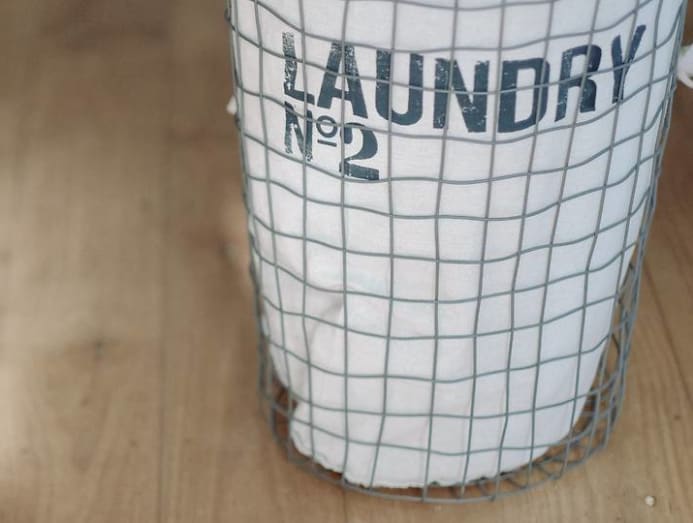Commentary: Actually, women are not better at multitasking
MELBOURNE: Multitasking has traditionally been perceived as a woman'southward domain.
A woman, particularly one with children, will routinely be juggling a job and running a household – in itself a frantic mix of kids' luncheon boxes, housework, and organising appointments and social arrangements.
But a new study shows women are actually no ameliorate at multitasking than men.
The study tested whether women were better at switching between tasks and juggling multiple tasks at the aforementioned fourth dimension. The results showed women's brains are no more efficient at either of these activities than men's.
Using robust data to challenge these sorts of myths is important, particularly given women continue to be bombarded with work, family and household tasks.
NO 1 IS GOOD AT MULTITASKING
Multitasking is the act of performing several independent tasks within a brusque time. Information technology requires rapidly and frequently switching attention from i job to some other, increasing the cognitive demand, compared to completing unmarried tasks in sequence.
READ: Commentary: The curse of the to-exercise list and the burden of invisible admin in an already busy life
This study builds on an existing body of research showing human brains cannot manage multiple activities at once. Particularly when two tasks are similar, they compete to use the same function of the encephalon, which makes multitasking very difficult.
But man brains are skillful at switching between activities speedily, which makes people feel like they're multitasking. The brain, notwithstanding, is working on one project at a fourth dimension.
In this new written report, German researchers compared the abilities of about 100 people in how well they identified messages and numbers. In some experiments, participants were required to pay attention to two tasks at once, while in others they needed to switch attention between tasks.
The researchers measured reaction fourth dimension and accurateness for the multitasking experiments confronting a control condition (performing one task only).
They establish multitasking substantially afflicted the speed and accuracy of completing the tasks for both men and women. There was no difference between the groups.
DOMESTIC DUTIES
My colleagues and I recently busted another relevant myth – that women are better at seeing mess than men. We constitute men and women equally rated a space equally messy.
The reason men do less cleaning than women may lie in the fact that women are held to higher standards of cleanliness than men, rather than men's "dirt blindness".
Men may be spending more fourth dimension doing domestic work than they used to, but women still do the vast majority of housework.
READ: Commentary: Do men get away with not cleaning up?
Working Australian women have seen their total fourth dimension across piece of work and family activities increment over time, with bread-winning mothers spending four hours more beyond these activities per calendar week than bread-winning fathers.
This means working mums are balancing planning birthday parties, childcare drib offs and ballet lessons all on summit of their regular jobs, commutes and careers.

CONSEQUENCES OF THE MYTH
If women'due south brains are as strained past multitasking, why do we keep asking women to do this piece of work? And, more importantly, what are the consequences?
Our contempo written report shows mothers are more time pressed and report poorer mental health than fathers.
We constitute the birth of a child increases parents' reports of feeling rushed or pressed for fourth dimension, but the issue is twice the size for mothers than information technology is for fathers. 2nd children double mothers' time pressure again and, every bit a consequence, lead to a deterioration in their mental wellness.
READ: Commentary: Are women however expected to exercise near of the housework?
Women are besides more likely to drop out of paid work when children are built-in or family demands intensify. They carry a larger mental load tied to organising the needs of the family – who has clean socks, who needs to be picked upward from schoolhouse, whether there is enough Vegemite for lunch.
All of this labour is at the expense of fourth dimension planning for the adjacent 24-hour interval's work, the side by side promotion, and then on.
Women are also asked to multitask family unit demands at night. Children are more probable to interrupt their mother's than their begetter'southward sleep.
Although gender roles are changing and men are assuming a larger share of the housework and childcare than in the past, gender gaps remain in many important domains of piece of work and family unit life. These include the allocation of childcare, the division of housework, the wage gap, and the concentration of women in top positions.

So, the multitasking myth means mothers are expected to "do it all". But this obligation can touch women'south mental health, likewise equally their capacity to excel at piece of work.
CHALLENGING MIS PERCEPTIONS
Public stance persists that women have a biological border as super-efficient multitaskers. But, every bit this study shows, this myth is non supported by bear witness.
This means the actress family work women perform is just that – actress work. And nosotros need to run across it as such.
READ: Commentary: 'Super mums' have one simple request. Don't hinder them from returning to work
Within the family unit, this work needs to exist catalogued, discussed and then equally divided. More than men today are invested in gender equality, equal sharing and co-parenting than e'er earlier.
As well every bit in the home, we need to dismantle these myths in the workplace. The assumption women are better multitaskers can influence the resource allotment of administrative tasks.
Tasks like taking minutes and organising meetings should non be allocated based on gender.
Finally, governments need to dismantle these myths within their policies. Children add piece of work that cannot exist easily multitasked. Women need affordable, loftier-quality, and widely available childcare.
Men also need access to flexible piece of work, parental go out and childcare to share in this labour, and protections to ensure they aren't penalised for taking time to share in the care.
Debunking these myths that expect women to be superheroes is a good thing, but we need to go further and create policy environments where gender equality can thrive.
Leah Ruppanner is Associate Professor in Sociology and Co-Managing director of The Policy Lab, University of Melbourne. This commentary showtime appeared in The Chat.
Source: https://cnalifestyle.channelnewsasia.com/commentary/multitasking-women-better-than-men-why-reasons-how-228831
0 Response to "Commentary: Actually, women are not better at multitasking"
Post a Comment